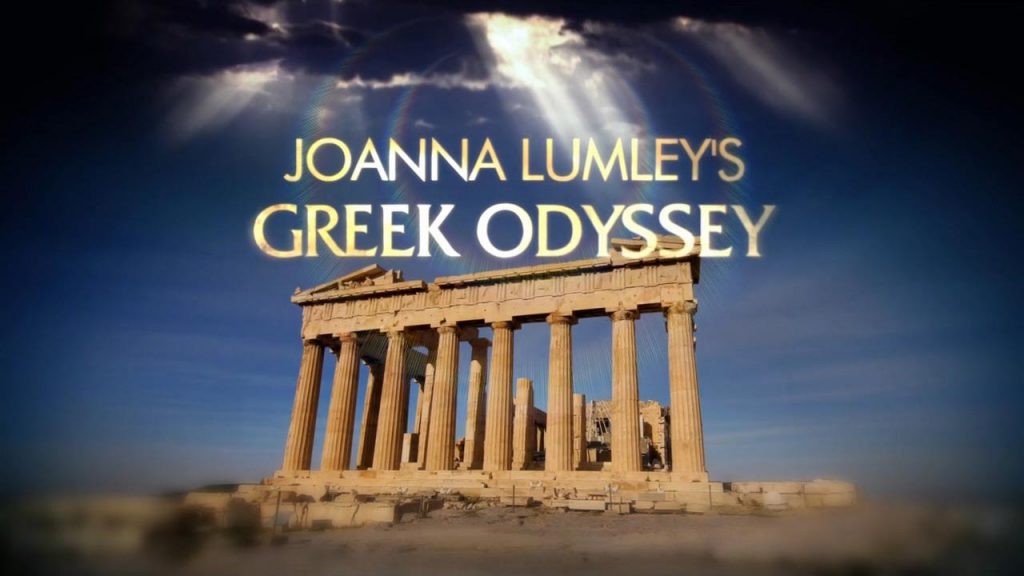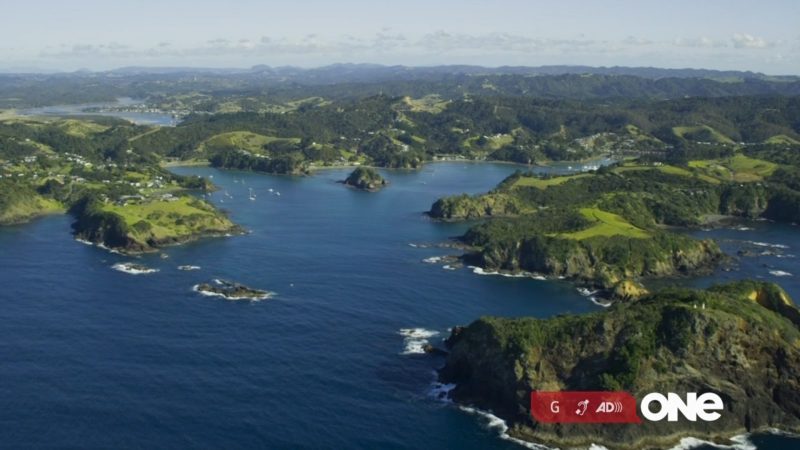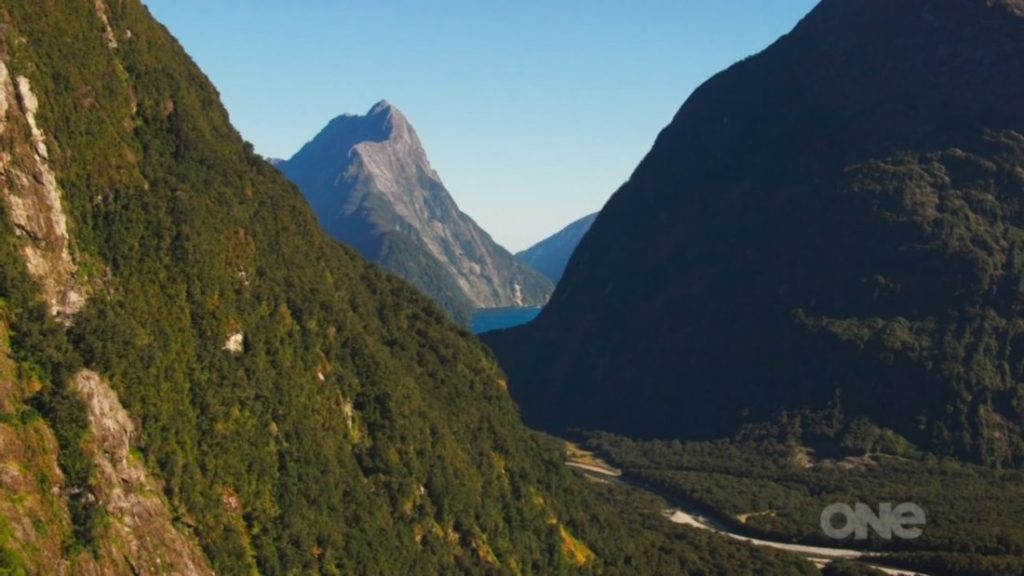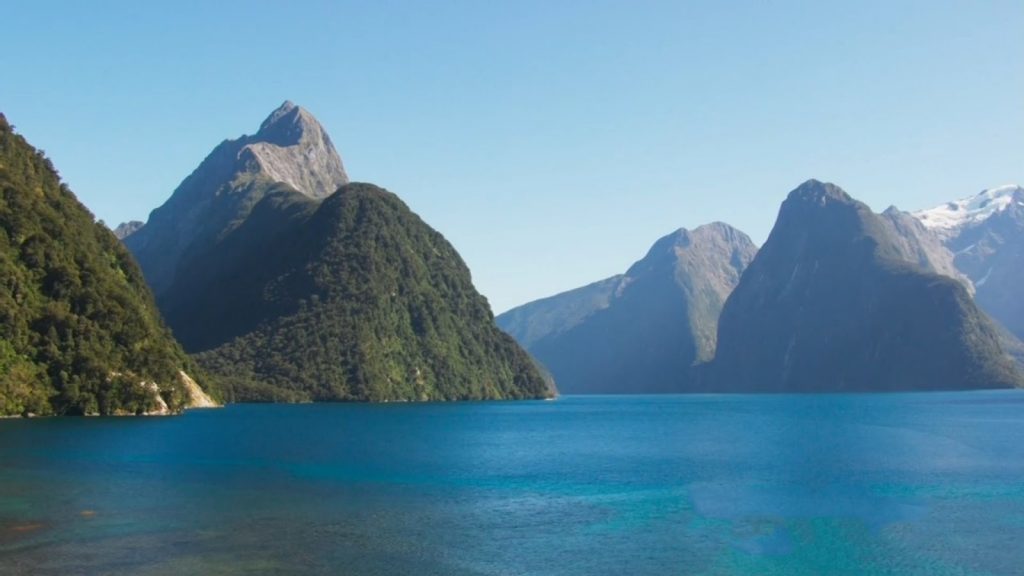Greek Odyssey episode 4: This week Joanna meets the people and discovers places in the mountainous region of northern Greece. Here the hills are alive with ancient stories and legends. Some familiar, others long since gone untold. Where better to start than a climb up Mount Olympus, the country’s highest peak. Here, the ancient Greeks believed that the gods had their dwelling place, where they meted out punishments and blessings upon the mere mortals, thousands of feet below. She meets the modern gods of today, sporting athletes who taking part in the brutal challenge of the Mount Olympus marathon.
Joanna travels east to discover more legends and traditions off the beaten track. She is quite unprepared for a women’s rude fortune telling festival, which has origins dating back to Homer. Poems are read out to large crowds, telling of someone’s future, but often these revelations are quite shocking and vulgar. Joanna also explores a magnificent church that was built in just forty days and discovers the otherworldly landscape of Meteora, where Orthodox monks still inhabit the monasteries in the sky.
Joanna Lumley sets out to explore one of the most diverse and surprising countries in Europe, where much of western civilisation began. On her odyssey, Joanna encounters both the ancient and modern aspects of Greece, touching on how the origins of drama, democracy, science, philosophy and medicine can be found here, and how they have left an enduring legacy on the fabric of our everyday life.
Following in the footsteps of the ancient Greeks, she visits some of the most significant sites of their empire, exploring the history, gods, beliefs, myths and legends which hail from this profoundly significant chapter in European history. Delphi, Ancient Olympia, the Gates of Hades and Mount Olympus all feature within her travels. So too does the British influence on this land, from the occupation of Corfu to its connection with the most romantic of all poets, Lord Byron.
Greek Odyssey episode 4
The mountainous region of northern Greece is a stunning destination that attracts visitors from all over the world. This area is renowned for its rugged terrain, which offers some of the most challenging hikes in Greece. Moreover, the Pindus Mountains, one of the most notable mountain ranges in the region, are home to several national parks, including the Vikos-Aoos National Park, famous for its spectacular views.
Besides, the region boasts the famous Mount Olympus, a popular destination for hikers and climbers seeking to explore the mythical home of the Greek gods. Other smaller mountain ranges are also spread across northern Greece, providing visitors with an opportunity to explore remote areas with stunning views.
One of the most fascinating aspects of the mountainous region is the small towns and villages that provide an insight into traditional Greek life. These towns are often nestled in the mountainsides, allowing visitors to experience the rich history and culture of the area. If you love outdoor activities and natural beauty, the mountainous region of northern Greece is a must-visit destination. It caters to both experienced hikers and casual travelers, offering something for everyone. A trip to this region is sure to leave you with unforgettable memories that will last a lifetime.
Greece
Greece is a country located in southeastern Europe, known for its rich history, stunning landscapes, and vibrant culture. With its ancient ruins, beautiful beaches, and charming villages, Greece has long been a popular destination for travelers from all over the world.
The country’s history is one of its most defining features, and visitors to Greece are sure to encounter reminders of its ancient past at every turn. The country is home to many important historical sites, including the Acropolis of Athens, the ancient city of Delphi, and the Palace of Knossos on the island of Crete. These sites provide a glimpse into the ancient world and the powerful civilizations that once ruled over the region. Greece’s natural beauty is also a major draw for visitors. The country is home to a diverse array of landscapes, from rugged mountains and deep gorges to stunning beaches and crystal-clear waters. The islands of the Aegean, including Santorini, Mykonos, and Rhodes, are particularly popular with tourists, thanks to their idyllic beaches, charming towns, and picturesque scenery.
In addition to its history and natural beauty, Greece is also known for its vibrant culture. From traditional music and dance to delicious cuisine and wine, the country has a rich and diverse cultural heritage that is celebrated and cherished by its people. Festivals and events are held throughout the year to mark important occasions, and visitors are always welcome to join in the celebrations. Greece is a truly special destination that has something to offer everyone. Whether you’re interested in history, culture, nature, or simply enjoying a relaxing beach vacation, Greece has it all. With its warm and welcoming people, delicious food, and stunning scenery, it’s no wonder that Greece continues to be a favorite destination for travelers from all over the world.
Mount Olympus – Greek Odyssey episode 4
Mount Olympus, located in northern Greece, is known worldwide as the mythical home of the Greek gods. With its summit reaching 2,917 meters above sea level, it is the highest mountain in Greece, and its reputation has drawn visitors for centuries.
Historically, Mount Olympus was considered sacred by the ancient Greeks, and they believed it to be the home of the twelve Olympian gods, who ruled over the world from the summit. According to Greek mythology, Zeus, the king of the gods, resided at the peak of Mount Olympus, and the other gods lived on the lower slopes. In ancient times, the mountain was considered to be so sacred that only priests were allowed to climb it. The priests would make a pilgrimage to the summit once a year, where they would offer sacrifices to the gods. The cult of Olympus was prevalent throughout the ancient Greek world, and the mountain became a symbol of Greek unity and identity.
The importance of Mount Olympus continued throughout the Hellenistic and Roman periods. The mountain was frequently depicted in art, literature, and poetry, and it became a popular destination for pilgrims and travelers. It was also believed to have healing powers, and many people sought refuge on its slopes. During the Ottoman period, Mount Olympus continued to be a symbol of Greek resistance and identity. Greek freedom fighters often retreated to the mountain, using its rugged terrain to evade Ottoman troops. In 1913, Mount Olympus was finally liberated from Ottoman rule, and it became an integral part of the newly independent Greek nation.
Today, Mount Olympus remains a popular destination for hikers and climbers who come to experience its beauty and majesty. It is home to a national park that covers an area of 39,000 hectares, and it boasts over 150 peaks, making it a paradise for adventurers. Despite its popularity, Mount Olympus remains a symbol of Greek mythology and history. It continues to inspire artists, writers, and poets, and it remains an integral part of the Greek national identity. A visit to Mount Olympus is not just a trip to a mountain; it is a journey through the history and mythology of Greece.




